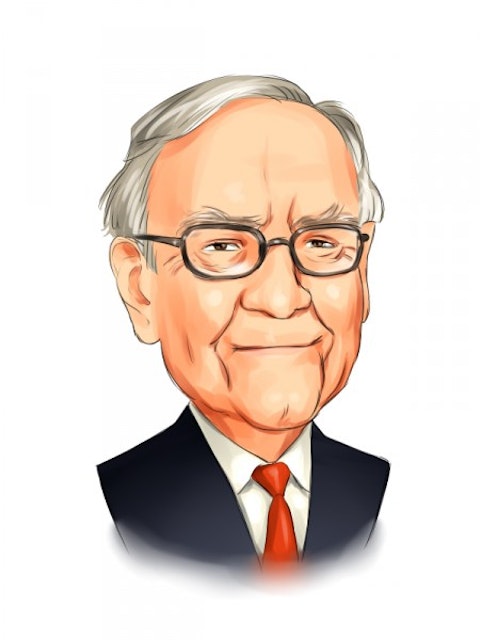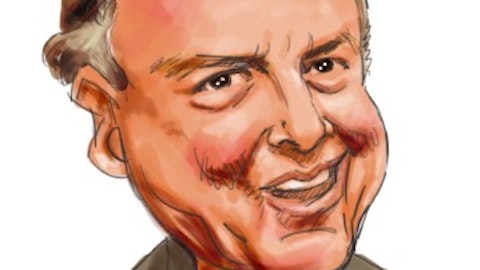One of the great beverage rivalries of all-time pits Warren Buffet and John Horseman favorite, Coca-Cola (NYSE: KO) against Donald Yacktman favorite, PepsiCo (NYSE: PEP). Interestingly enough, numerous blind taste tests have all proved inconclusive, with results consistently around fifty fifty. Some consumers maintain that the two are similar enough to be substitutes, while other consumers exhibit extreme loyalty to one brand. Both companies spend millions of dollars every year on marketing to create an emotional tie between consumers and their product, but which is the victor from a stock perspective?

With KO we want to take a closer look at its potential purchase of Monster Beverage (NASDAQ: MNST), which owns Monster Energy brand and Peace Teas. Not too long ago, KO paid approximately 6.0x TTM sales for Glaceau, the owners of Vitamin and Mineral Water. And here KO is allegedly ready to pay 7.0x sales or a rather steep 25.0x EBITDA. We agree that the potential deal with MNST would generate significant synergies since KO could start by integrating MNST’s existing infrastructure/bottling operations into its advanced supply chain and distribution network. Granted, no synergy estimates have been released by either party. However, that lofty 25.0x EBITDA, which by the way has not been confirmed, combined with a historical beverage acquisition gives us reason to be uneasy. Even with a strong balance sheet, we think at that price, KO would be overpaying for the growth that MNST would add to the overall company. Now, MNST’s growth rates are nothing to sneeze at: as validation of its growth potential, for the month of March, sales grew 49%, more than half from volumes, when overall energy drink sales in Europe were up 9.9%.So while we see a logical strategic rationale behind a potential deal, investors will need to get comfortable with the fact that KO may need to pay a high multiple to secure MNST. The only negative that we currently identify is that recently, there has been a lot of hoopla in the media surrounding the negative impact of energy drinks on consumers’ health. KO would have to deal with those health concerns from a marketing and ingredient sourcing perspective.
From a broader financial health standpoint, KO increased CFO to $493 million, up 8% y-o-y from mostly due to higher receipts from customers and the favorable impact of discontinuing the temporary extension of credit terms in Japan (due to last year’s tsunami. However, FCF remains negative, though an improvement y-o-y—negative $99 million in Q1 compared to negative $131 million y-o-y. This is in part due to the heavy investments the company has made. In Q1 alone, KO invested $4.9 billion up from $1.0 billion one year prior.
In February, KO announced a four-year productivity initiative that is projected to save the company $550 million to $650 million annually through 2015. The focus is on supply chain optimization, marketing and innovation effectiveness, operating expense leverage and operational excellence, and data and IT systems standardization. Additionally, the integration of German bottling operations has been progressing with an additional $13 million in transaction expenses being booked in the quarter.
Not to be left behind, PEP has productivity initiatives of its own. The company reported some integration charges related to its productivity plan that will include consulting fees, plant closings, severance costs, and contract terminations. These charges increased capex numbers for Q1 and management expects additional cash outlays of $506 million for the rest of the year. PEP’s targeted completion date expects the majority of the productivity plan to be complete by year-end with some minor enhancements continuing through 2015. We also share some sell-side analyst sentiment that PEP could unlock additional value through a divestiture of its bottling services. A divestiture would have the likely outcome of raising PEP’s P/E multiple (see chart below).
PEP also ranks high when it comes to shareholder friendliness, continuing to execute on its share repurchase plan. The company repurchased ~$293 million under the current $15 billion in authorized share buyback in Q1, and this year alone, PEP expects to return $6 billion to shareholders vis-à-vis dividends and share repurchases. And beverages aside for a moment, PEP’s salty snack sales in Europe were particularly impressive. PEP European sales for salty snacks, grew 5.8% in March. PEP seems to have been taking market share in February and March. gaining share in February and March. The sales growth was driven by pricing power, offsetting a slight decline in volumes.
We view the beverage industry more favorably in light of improving fundamentals in volume upticks and pricing power. European grocery data in March showed an acceleration in sales growth of 5.2% for carbonated soft drinks with volumes flat. This is up from 3.7% in February and 2.2% in January. PEP outgrew KO, with sales up 8.0% versus KO’s 3.4%. With PEP’s shares trading at roughly 15.5x 2013 EPS estimate, we think valuation is compelling. As PEP reports strong growth numbers and realized cost savings, that multiple will have some room to expand, independent of a bottling divestiture. With KO, we think the opportunities in emerging markets, restructuring initiatives, and cash generation, which will allow continued capital return to shareholders, has by and large been priced into current valuation of 17.0x 2013 EPS. We are currently PEP fans. Meanwhile, the taste battle rages on.



